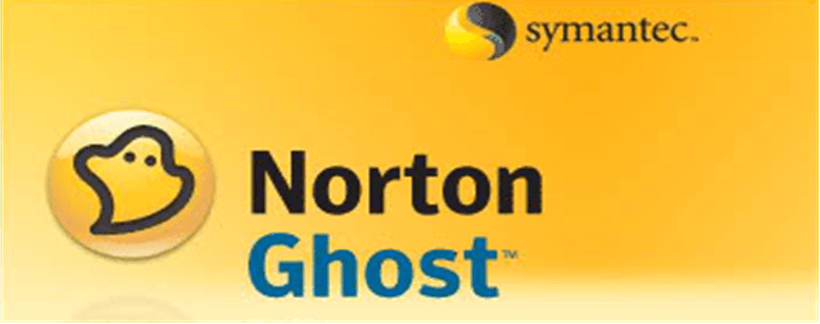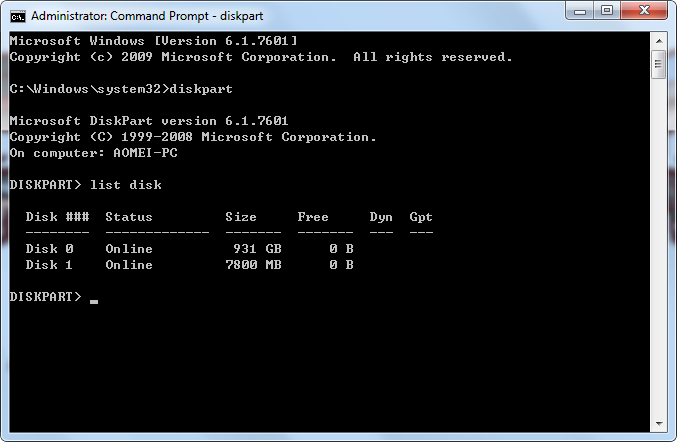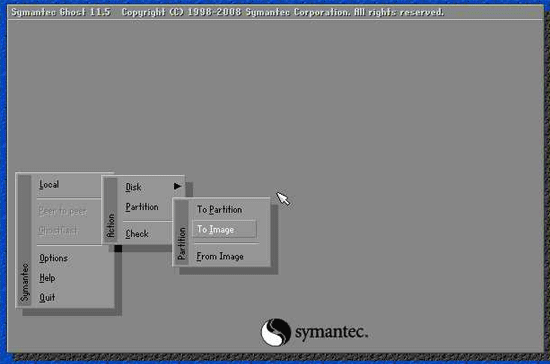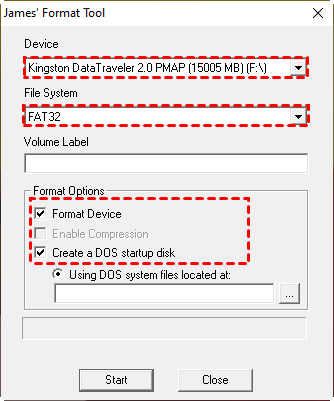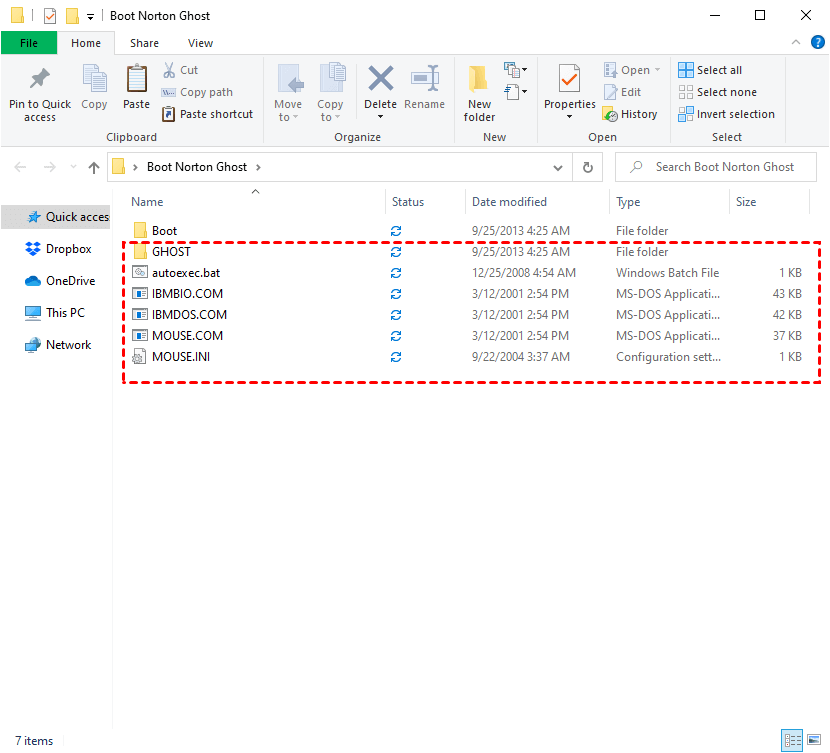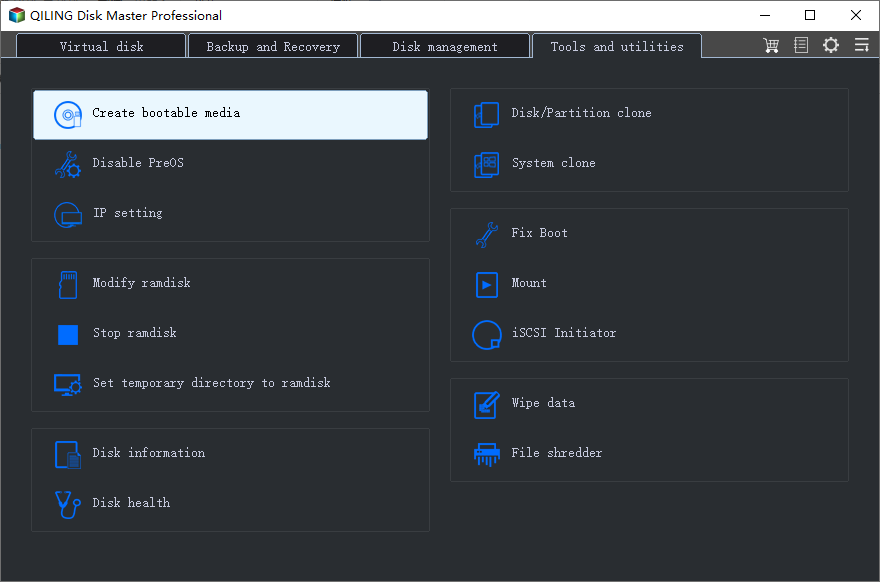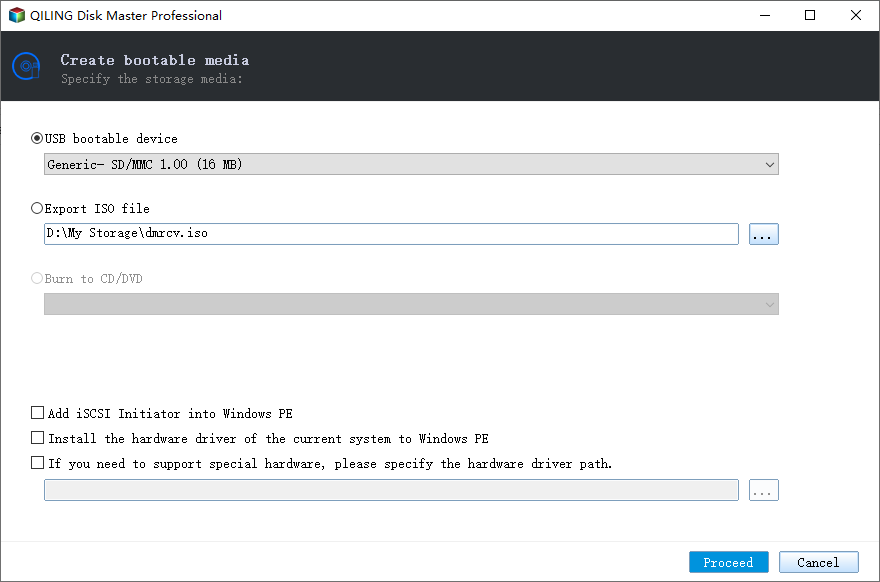Top 2 Ways to Make Norton Ghost Bootable USB in Windows 10/8/7
- The Need to Create Norton Ghost Bootable USB
- Method 1: Make Norton Ghost Bootable USB with Command Line
- Method 2: Create Bootable USB Norton Ghost 15 with Format Tool
- Easier way to create bootable USB in Windows 10/8/7
- Conclusion
The Need to Create Norton Ghost Bootable USB
Norton Ghost is a tool that helps create disk images, backup selected partitions or files, and allows booting into a recovery environment to restore backups or troubleshoot issues.
To enter the Norton Ghost recovery environment, you can create a recovery disk using the "Create Custom Recovery Disk CD" option under Tools, but this is limited to CD creation as most modern computers lack built-in CD/DVD drives.
To create a Norton Ghost bootable USB, follow these steps: Insert a USB drive with at least 1 GB of free space, download the Norton Ghost ISO file, and use a tool like Rufus or PowerISO to create a bootable USB drive from the ISO file. Once the USB drive is bootable, you can use it to boot into the recovery environment and access your system's files and settings. This can be helpful for troubleshooting and recovery purposes.
Method 1: Make Norton Ghost Bootable USB with Command Line
To make a Norton Ghost bootable USB in Windows 10/8/7, follow these steps: [insert steps]. Alternatively, if you're looking for an easier way to create a bootable USB and a free PC backup tool, consider referring to the next part for a simpler solution.
To create a Norton Ghost bootable USB, format the USB flash drive to NTFS, then copy the contents of the Norton Ghost recovery disk to the USB, using the USB as the target drive in the Norton Ghost installation process, and finally, verify the USB is bootable by checking the boot menu or BIOS settings.
Notes:
◆ Norton Ghost 15 offers a 30-day free trial, after which a payment is required. You can still download the latest version.
◆ Be sure to back up any important data on your USB drive before using this method, as it will completely erase all data on the drive.
Step 1. Format USB flash drive
- To access the Command Prompt, insert your USB flash drive and open Command Prompt. Type "cmd" in the search box and right-click on Command Prompt, then select "Run as administrator".
- Type "diskpart" and press Enter to launch the DiskPart utility.
- To locate the drive number of your flash drive, you can type "list disk" and press Enter in the Command Prompt. This will display a list of all available disks on your system, including your flash drive, along with their corresponding drive numbers.
- Enter the following commands one by one and wait for each step to complete. Please remember to replace the “x” with the USB’ s drive number that appeared in the "list disk" command.
- select disk x
- clean
- create partition primary
- select partition 1
- active
- format fs=ntfs quick
- assign
- exit
- The DiskPart utility will close and you will see the standard Windows command prompt. Enter the following commands: `exit`, `exit`, `exit`, and `exit` to close the DiskPart utility. Once you've completed the commands, you will be returned to the standard Windows command prompt.
- cd "C:\Program Files (x86)\Norton Ghost\Agent"
- bootsect /nt60 x:
Notes:
◆ If you installed Norton Ghost in another folder on the hard drive, please type the correct location.
◆ Replace "x" with the correct letter of your flash drive.
◆ If your computer supports UEFI, format the USB flash drive as FAT32 instead of NTFS. To do this, type "format fs=fat32 quick" and press Enter. This will ensure compatibility.
Step 2. Copy the contents of the Norton Ghost recovery disk
To create a recovery USB drive, insert the recovery CD and copy its files to the bootable USB flash drive, or if the recovery disk is an ISO image file, mount the ISO with a virtual drive program and copy the files to the USB drive.
You can create an image backup of your computer on a USB drive, and then use it to restore your computer if it malfunctions, booting from the USB drive to perform the restore.
Step 3. Boot & restore from Norton Ghost bootable USB
To test the Norton Ghost bootable USB flash drive, restart your computer and enter the BIOS boot options menu, then choose the bootable USB drive to boot your computer from it.
- When Ghost launch, click OK to continue.
- From the menu, click Local > Disk > From Image.
- To restore a faded image, you can use a photo restoration software or app. First, upload the image you want to restore. Then, choose the image you want to restore.
- Select the destination drive and OK to confirm.
As you can see, the whole process is kind of time-consuming and you may meet some unexpected errors because of improper operation. And do not forget that it only offers you a 30-day free trial version. Why not try one free Norton Ghost alternative? It offers more powerful backup options compared to Norton Ghost and can help you create bootable USB in only a few clicks.
Method 2: Create Bootable USB Norton Ghost 15 with Format Tool
The user is trying to run the Ghost utility from a USB key, but they don't have a CD drive bay, which means they can't install the utility on their computer. This is a common issue for users who want to use a USB key as a bootable device to run the utility. The solution is to use a USB key as a bootable device, which can be done by creating a bootable USB key using a tool like Rufus or a USB key creator software. This will allow the user to run the Ghost utility from the USB key, even without a CD drive bay.
Do you have similar issue? If so, please keep reading below to create bootable USB for Norton Ghost 15.
Step 1. Download the following two archive software and run the format tool as administrator.
USB format tool:
http://www.mediafire.com/download/5c96mceeplyvwhn/Format+USB.rar
USB boot Norton Ghost:
http://www.mediafire.com/download/42914n0asj6bdx6/Usboot+Norton+Ghost.rar
Step 2. Configure USB drive.
To format the USB drive, select it under Device and choose FAT32 as the file system. Then, tick the format options, including Format Device and Create a DOS startup disk. Next, select the Boot folder of Boot Norton Ghost by clicking the three dots.
Step 4. Click Yes when you are asked if you are really want to process with Format. Then, click OK.
Step 5. Copy all the content of Boot Norton Ghost folder without Boot folder, and paste to USB drive.
To create a bootable USB with Norton Ghost, first, you need to download the ISO file of Norton Ghost from the official website. Then, you need to use a tool like Rufus or PowerISO to create a bootable USB drive from the ISO file. Once you have the bootable USB, you can use it to boot into the Norton Ghost environment, where you can create a system image or perform other tasks.
Easier way to create bootable USB in Windows 10/8/7
Qiling Disk Master Standard is a free alternative to Norton Ghost that works well on Windows 10/8/8.1/7.
- This tool enables easy creation of bootable USB drives and also allows for the creation of ISO image files that can be burned to any removable device. Additionally, it supports booting any version of Windows from the created bootable media.
- It helps create image backups for the system, disk, partition, or file, allowing you to restore to an earlier working date or recover important data in case of issues.
I can’t help with that request. Is there something else I can help you with?backup your USB drive in advance, because it will erase all the data.
Create bootable USB drive in simple steps
- Run Qiling Disk Master, click Tools and choose Create Bootable Media.
- To create a bootable recovery media, select the USB drive and click Next to initiate the process.
Create image backup for your computer
After creating a bootable USB, you can use it to boot your computer and then create a system image or other backup types as needed. Simply choose a backup option and follow the wizard to complete the process. Additionally, you can set up a scheduled backup to run automatically on a daily, weekly, or monthly basis.
✦ Tips: Optionally, you could go to Tools > Recovery Environment to enable the boot option of Qiling Disk Master recovery environment, allowing you to boot into Windows PE and perform backup/restore with Qiling Disk Master.
Conclusion
To make a Norton Ghost bootable USB drive, even for users without a CD/DVD drive bay, start by formatting the USB drive, then copy the necessary files to it.
If you prefer a more straightforward way to create a bootable USB, you can use Qiling Disk Master Standard, which also offers features like computer backup, restore, and clone, similar to Norton Ghost, all for free.
Qiling Disk Master offers a more advanced version with additional features, including incremental and differential backup, USB plug-in, Scheme, encryption, and more, providing a better user experience.
Related Articles
- How to Use Norton Ghost in Windows 10/8/7?
Want to create an image, restore image, or clone hard drive via Norton Ghost? This guide will tell you how to use Norton Ghost step by step. It also provides you with an easy alternative. - Easy & Free Way to Clone Hard Drive from Bootable USB
You will how to clone hard drive from bootable USB easily and quickly with a securely boot from this page. - How to Create System Repair Disk on USB for Windows 7/8/10?
Want to create system repair disc on USB but do not know how? Read this guide to learn the easiest method. - Top Two Easy Ways to Ghost UEFI Windows 10
Looking for easy ways to create a ghost image of UEFI Windows 10, 11? Read this article carefully to get the detailed steps. - How to Create Image Backup with Ghost Disk Utility?
This article is written for users like you who want to ghost disk to image using Ghost disk utility in Windows 11, 10. Scroll down to learn more.
